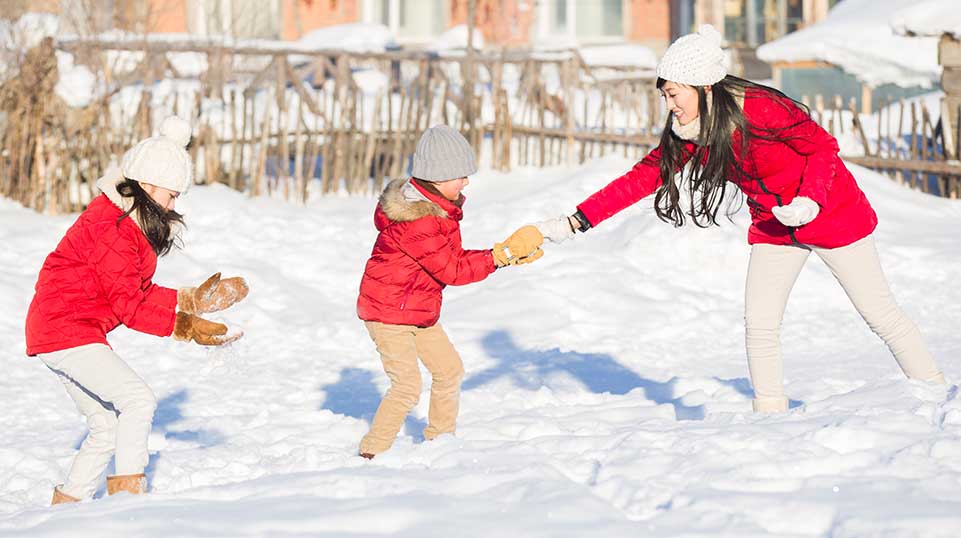The holiday season often brings forth feelings of warmth, joy, and cherished family traditions. For many, this festive time is eagerly anticipated, but if you’re a parent of a child with Autism, you might find yourself bracing for a unique set of challenges during this time of year.
The holiday season, with its dazzling lights, festive decorations, altered routines, and heightened expectations, can be overwhelming for children with Autism. This doesn’t diminish their love for the season, nor does it mean you should abandon cherished traditions. It just means that you may need a little extra understanding and preparation to make the holidays a wonderful experience for your child and the entire family.
In this article, we will offer you ten practical tips to help you and your child not only survive the holidays but thrive during this special time of year.
- A Little Preparation Goes a Long Way
Children with Autism often thrive on routine and predictability, but during the holidays, maintaining consistency can be challenging. With extended school breaks and missed therapy appointments, their familiar structure may be disrupted. Additionally, holiday travel, parties, and festivities, though special and meaningful, can introduce stress and uncertainty into their daily lives.
Social stories and visual schedules are powerful tools to help your child understand the holiday routines and expectations. If you are traveling for the holidays, prepare your child for car or plane trips by introducing them to the experience through stories and videos first. You can ask your child’s Occupational Therapist for help with making these visuals, as well as their recommendations for additional tools that will help your child navigate the holiday season.
- Plan for Sensory Differences
For kids with sensory differences, transitioning into winter clothing like coats, hats, and gloves can be a challenge. Consider introducing these items gradually and offering choices to accommodate their preferences. Do some practice rounds at home first. Nothing is more stressful than trying to put a hat or winter coat on your child for the first time of the season when you’re strapped for time!
When traveling, having a sensory box on hand can provide comfort and familiarity, with items like fidget toys, noise-canceling headphones, or textured objects to help soothe and support your child’s sensory needs.
- Decorate Gradually
When it comes to decorating for the holidays, the key is to decorate gradually. Rushing into a festive transformation, while appealing to many of us, can be overwhelming for a child on the Autism Spectrum. Instead, introduce decorations one at a time, allowing your child to get used to the new elements and textures.
Perhaps put your tree up one day, the lights the following day, and the ornaments on a third day. This gradual approach helps reduce sensory overload and provides a sense of control. You may want to consider a decoration-free zone, such as your child’s bedroom, where everything stays the same. This can be comforting to a child who is still getting used to the extra sparkle and excitement of the holiday season!
- Don’t Stress Over Meals
While it’s easier said than done, the holidays are not a time to stress over your child’s picky eating. Many children, both with Autism and without, face feeding challenges and struggle with new tastes, smells, and textures. The variety of new food that they might encounter at a holiday party can be overwhelming.
Come prepared with a separate meal for your child – even if that means chicken nuggets or a peanut butter and jelly sandwich. Take the time to enjoy your own meal and cherished holiday foods. You can always work on introducing these special holiday foods to your child at a later date, without the added pressure (and opinions) of well-meaning relatives!
- Be Okay With Saying “No”
You don’t have to go to every holiday party or every event your town puts on. Sometimes less is more. If you feel that a particular gathering will bring undue stress to you or your child, it’s okay to sit this one out. You may enjoy having some extra quiet family time at home instead.
- Create Autism-Friendly Traditions and Memories
Create some new holiday traditions by catering to your child’s interests. For instance, if they’re passionate about trains, think about heading to a nearby train station to witness them in action. Enjoy the experience from the comfort of your car, sipping on hot chocolate for a special and sensory-friendly moment, away from the hustle and bustle of crowds.
You can also participate in sensory-friendly holiday events, including the Secret Sleigh Project and the Santa Cares Program. These events are low-sensory and inclusive to all.
- Draw Boundaries
If you are heading to a holiday party, make sure to communicate with the host ahead of time what time you plan to leave, and how to accommodate your child’s unique needs. Having a predetermined exit plan will allow you to leave gracefully, minimizing potential stress for your child. Most people are very accommodating to children with special needs and are more than happy to help. If not, it may be a party you want to skip out on this year!
- Build in Breaks
If possible, build breaks into your holiday schedule by avoiding back-to-back events or consecutive day commitments. Having normal, routine-filled days between festivities provides a comforting anchor for your child with Autism. This approach helps prevent sensory overload and exhaustion, allowing them to recharge and better navigate the holiday season.
- Practice Gift Etiquette
Encourage your child to practice gift etiquette by saying “thank you” and “you’re welcome,” waiting patiently for their turn to unwrap presents, and quietly watching while others do the same. It’s a great idea to practice these social skills in advance. Your child’s Occupational Therapist or ABA Therapist can also work on these skills with your child!
- Sharing Your Child’s Diagnosis with Relatives
When it comes to sharing your child’s diagnosis with relatives, prioritize your comfort and boundaries. You’re not obligated to disclose details, and it’s okay to keep certain aspects private. If your child’s behavior raises questions, you can tactfully address specific concerns without explicitly mentioning Autism. For instance, explain, “He doesn’t like loud noises; can we please turn that off?”
Understand that awareness about Autism varies, and not everyone may be well-informed. It can be a great opportunity to gently educate family members, but know that it is completely up to you (and your child) what you choose to disclose.
If you’re interested in ABA therapy or other Westside services, please click the link below or call us at (815) 469-1500 and our team will walk you through the process.







